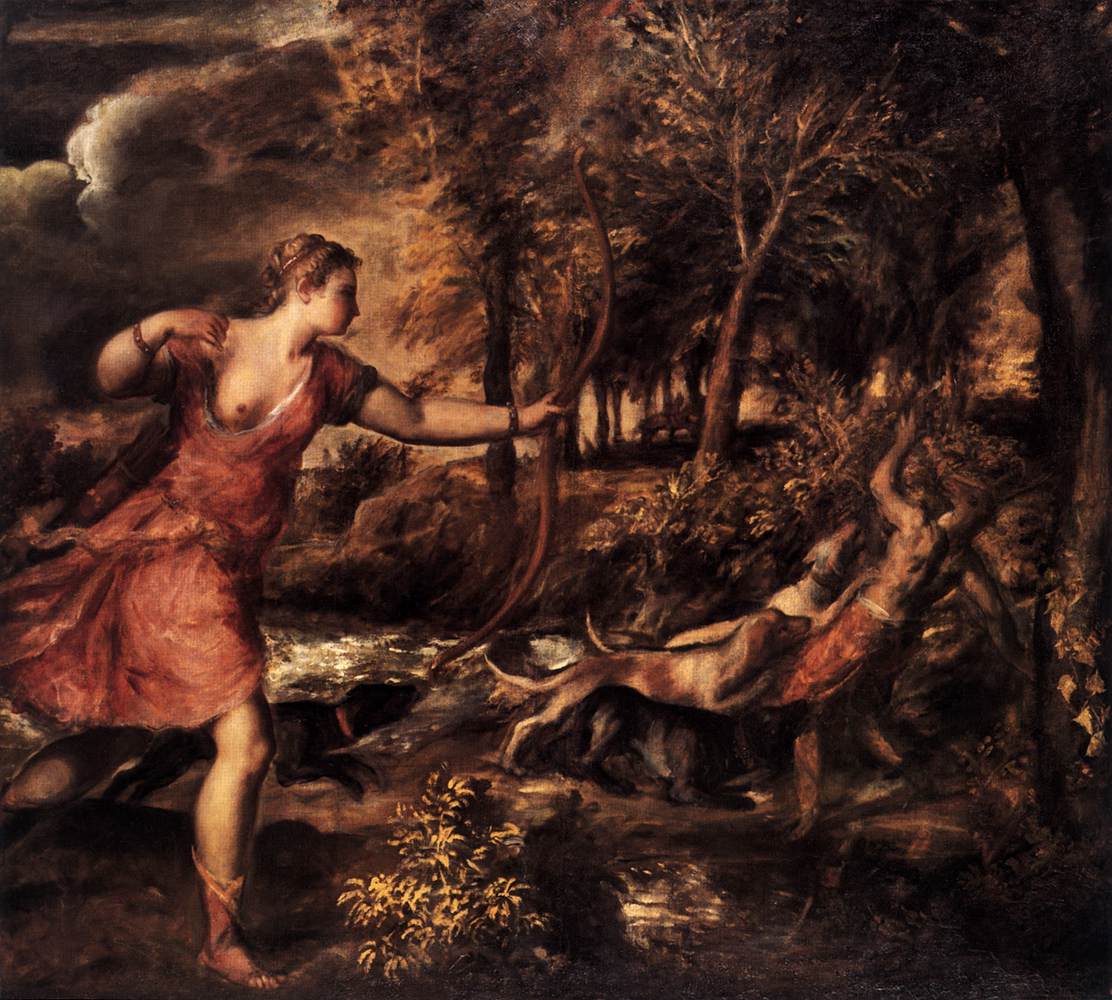Description
The painting "Death of Actaeon" by renowned artist Tiziano Vecellio is a masterpiece that captivates with its artistic style, masterful composition, use of color and the fascinating story it depicts. With an original size of 179 x 189 cm, this painting is one of the most outstanding works of the Renaissance period.
Titian's artistic style in "Death of Actaeon" is characteristic of his innovative approach and his ability to capture emotion and drama in his works. He uses a loose, flowing brushwork technique, creating a sense of movement and energy in the scene. His mastery of chiaroscuro, the technique of contrast between light and shadow, highlights the details and expressions of the characters.
The composition of the painting is impressive. Titian uses a diagonal approach that guides the viewer's gaze from the foreground to the background of the scene. At the center of the composition is Actaeon, the hunter mortally transformed into a deer by the goddess Artemis as punishment for having caught her naked. The surrounding characters, both human and animal, are dynamically arranged, creating a sense of tension and drama.
The use of color in "Death of Actaeon" is another highlight. Titian employs a rich and vibrant palette, with warm tones and bold contrasts. The intense colors, such as red, gold and green, highlight the tragedy and violence of the scene. Additionally, the artist uses color to represent the beauty and power of nature, as seen in the lush vegetation and wild animals that surround Actaeon.
The story behind this painting is fascinating. It is based on a Greek myth in which Actaeon, a proud and arrogant hunter, is punished by the goddess Artemis for spying on her while she bathes. Actaeon's transformation into a stag and his subsequent death at the hands of his own hunting dogs is depicted with great intensity and emotion by Titian.
In addition to these known aspects, there are lesser-known details about the painting. For example, "Death of Actaeon" is believed to have been commissioned by King Philip II of Spain, who was a great admirer of Titian. The work is also said to have been influenced by classical sculpture and contemporary Venetian painting, demonstrating Titian's ability to combine different influences in his work.
In short, "Death of Actaeon" is a painting that stands out for its artistic style, masterful composition, use of color, and the fascinating story it depicts. Titian's ability to capture emotion and drama in his works is reflected in this Renaissance masterpiece.

